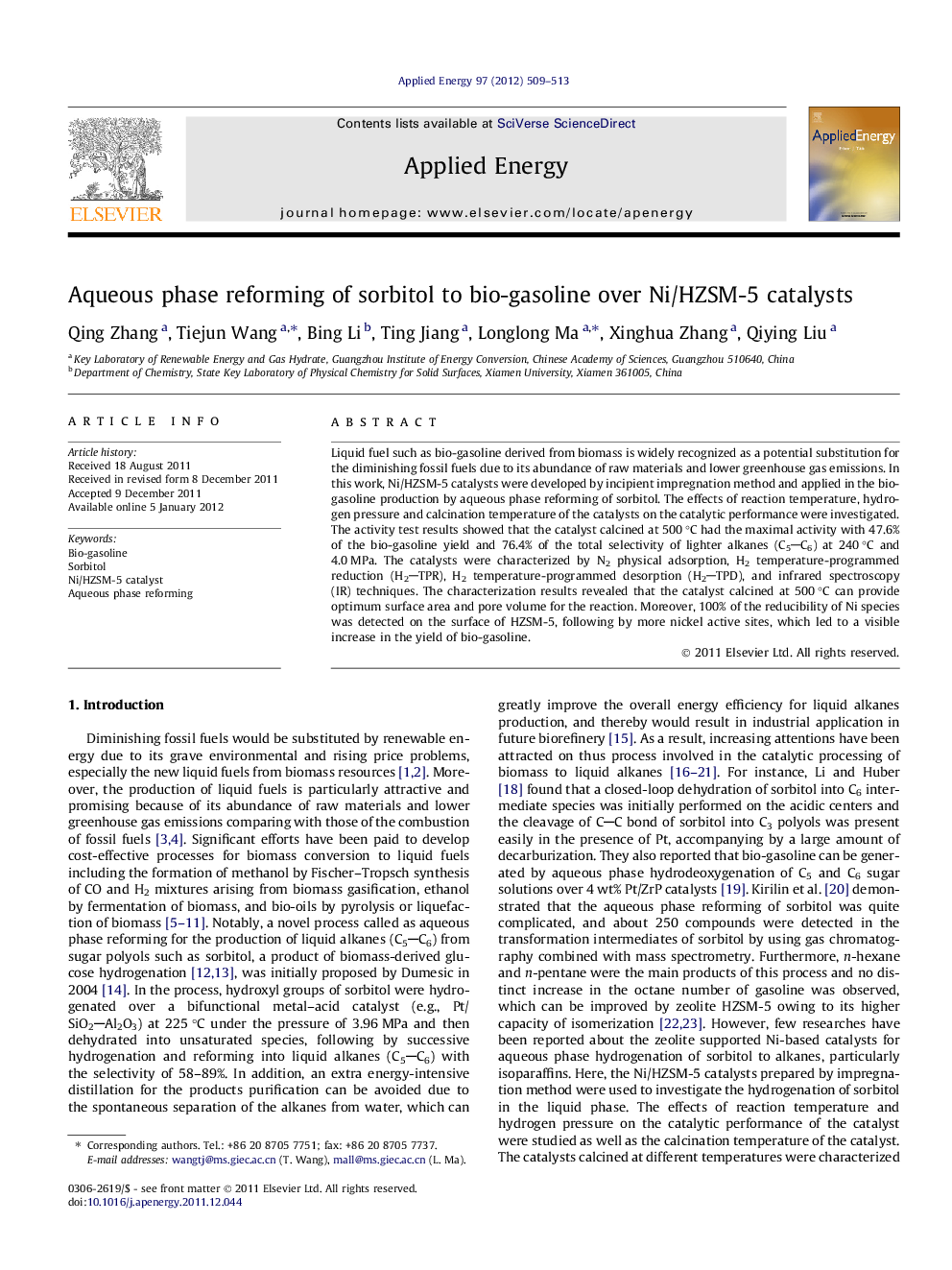| Article ID | Journal | Published Year | Pages | File Type |
|---|---|---|---|---|
| 243532 | Applied Energy | 2012 | 5 Pages |
Liquid fuel such as bio-gasoline derived from biomass is widely recognized as a potential substitution for the diminishing fossil fuels due to its abundance of raw materials and lower greenhouse gas emissions. In this work, Ni/HZSM-5 catalysts were developed by incipient impregnation method and applied in the bio-gasoline production by aqueous phase reforming of sorbitol. The effects of reaction temperature, hydrogen pressure and calcination temperature of the catalysts on the catalytic performance were investigated. The activity test results showed that the catalyst calcined at 500 °C had the maximal activity with 47.6% of the bio-gasoline yield and 76.4% of the total selectivity of lighter alkanes (C5C6) at 240 °C and 4.0 MPa. The catalysts were characterized by N2 physical adsorption, H2 temperature-programmed reduction (H2TPR), H2 temperature-programmed desorption (H2TPD), and infrared spectroscopy (IR) techniques. The characterization results revealed that the catalyst calcined at 500 °C can provide optimum surface area and pore volume for the reaction. Moreover, 100% of the reducibility of Ni species was detected on the surface of HZSM-5, following by more nickel active sites, which led to a visible increase in the yield of bio-gasoline.
► Development of an efficient bifunctional Ni/HZSM-5 catalyst for aqueous phase reforming of sorbitol. ► Optimizing the reaction process parameters for bio-gasoline production. ► Optimizing the interaction between Ni species and zeolite by calcination.
